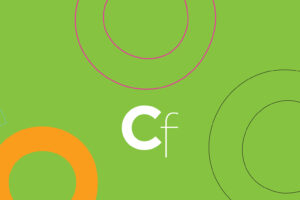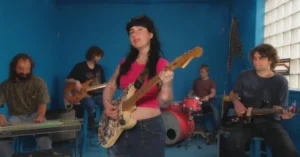Vinyl Reissues: 10 Essential Regina Spektor Songs


When I set out to compile a list of essential Regina Spektor songs to celebrate the vinyl reissues of Begin to Hope (2006), Far (2009), Live in London (2010), What We Saw From The Cheap Seats (2012), and Remember Us To Life (2016), I knew, at the very least, I wanted to mention two songs from each album. Ten is a more composite list than five. I also wanted a standard metric of how I would choose these songs. And that metric had to be more insightful than “I like this one because…” or “this is the perfect song for romance” (see also: Paris in the rain, bird watching, people named Mary Anne, people with blue eyes, people named Marcello, etc.) This led me to one metric that would explore certain “essential” elements of Regina Spektor’s music: her musical style, theological musings, irreverent candor, imaginative characters, and narrative wanderings.
The other standard, I remained less certain about. Regina Spektor is beloved. We are more likely to catch a faded whisper outside a sold-out symphony show or beyond the fence of an outdoor concert than to find her in a scraggly New York bar, where she began her music career. With that in mind, for the second metric, I invited four friends, fellow Regina Spektor lovers, leaving one album for myself, to choose a song from one of these albums that they love, and tell me why. Her music is so personal, the songs so unique, only diverse personal preferences could gather a broad compilation to reach something near essential.
If you have not yet been introduced to the universe of Regina Spektor where birds are sometimes tired liars and where the truest eye color is probably dark brown, here is your guide.
Begin to Hope (Yellow Flame LP)
‘On the Radio’
Begin to Hope was Spektor’s first studio album on a major label, allowing her musical accompaniments to inch just beyond Regina and Her Piano, to Regina and Her Tiny Orchestra. Still, her music retains the purity and whimsy of her less produced earlier releases. ‘On the Radio’ – a Billboard top 100 hit – packs all of the world’s wisdom into three minutes: “You’re young until you’re not/ You try until you can’t/ You laugh until you cry/ You cry until you laugh/ And everyone must breathe until their dying breath.” Her voice itself becomes an instrument in the chorus (“On the radio uh-oh”) in addition to the plucking piano, strings, hi-hat, shaker, and synth playing like a scene of woodland creatures poking their heads out from a variety of woodland places.
‘Summer in the City’
Despite the congenial subtext in the title ‘Summer in the City’ is a somber number. My friend Sarah chose this one, drawn to the song’s depiction of loneliness and brokenheartedness, while yearning for touch and affection. The duality of which is startlingly romantic. Alone on the piano, Spektor plays broken up chords and sings with vocal embellishments in the style of Sarah Vaughan and Billie Holiday. (The latter referenced in ‘Lady’.) Her voice trickles then rises so high it dissipates into the atmosphere. It may be summertime, but here, in this song, it is cold in the shade.
Far (Velum Clear LP)
‘Laughing With’
God and religion appear frequently in Spektor’s repertoire, not in worship, but in contemplation. These theological musings seem to stem naturally from a religious upbringing, someone who attended synagogue and yeshiva schools from a young age. In Spektor’s world, we 21st century dwellers have a non-religious, though not entirely non-fearing, relationship with God. The song opens, gentle piano chords in accompaniment, “No one laughs at God in a hospital/ No one laughs at God in war.” It is easy to imagine God invoked by even the most devout of atheists “when their airplane starts to uncontrollably shake.” Her frequent repetition of the word “God” turns the phrase into an idiom, instead of referencing some almighty ruler. Spektor is not God fearing herself, as she concedes, “God can be funny…when presented like a genie/ who does magic like Houdini.” The rhyme in genie and Houdini even mimic a short hehe of a laugh.
‘Blue Lips’
My friend Stella chose ‘Blue Lips’. Its sadness and existential grandeur made her want to listen when she was feeling ‘moody,’ while the shocks of electric guitar made her want to listen, also, whenever. ‘Blue Lips’ seems to be in conversation with ‘Laughing With’. The piano rumbles beneath Spektor’s fingers before she begins with the lyrics, “He stumbled into faith and asked/ ‘God, is this all there is?’” The song is not sung in exaltation, but approaches criticism: “No one saw and no one heard/ They just followed the lead.” It is playful. There’s a tambourine. Nevertheless, Spektor’s sense of awe is not entirely independent from religion, wrapping itself extravagantly around all manifestations of blue: remorse, creation, and “the color of our planet from far, far away.”
Live in London (Curacao 2LP)
‘Silly Eye Color Generalizations’
Spektor’s lyrics carry the sort of nonsensical charm of someone attempting to describe a dream. The randomness of these evocations are beautiful, even if an abundance of nonsense. In ‘Silly Eye Color Generalizations’, a previously unrecorded song, someone in the crowd whistles loudly as Spektor begins. In the middle of it, the whole crowd laughs after she tangentially drops the word “confusing”: “They freeze to dirty ice, but somehow they melt to clean blue water once again, confusing.” The smiles in the crowd, and on Spektor’s face, are palpable in the recording, teeming through her words. There is no musical accompaniment to dim either presence.
‘Hotel Song’
My friend Rachel loves this song. “It’s like someone put a bumper car on hydraulics,” she said to me over text, “Spektor’s voice is smooth, yet staccato. The lyrics are quintessential Regina, whimsical yet portentous.” I once heard someone claim to dislike Regina Spektor because her lyrics “didn’t make sense.” The simple explanation for such a proclamation is that that person, I believe, lacked an imagination, but they were probably introduced to her via ‘Hotel Song’: “I have dreams of Orca whales and owls/ But I wake up in fear.” The speed of Spektor’s performance separates this live recording from the original one. Spector sings like a girl at your younger sibling’s piano recital who decided to skip Bach’s Minuet in G Major and sing an original song instead. The performance turns out to be surprisingly alluring, she only knows how to be herself, but the nervous pace forces the teacher to drip sweat on the piano keys as she tries to keep up.
What We Saw From The Cheap Seats (Translucent Red LP)
‘Jessica’
Spektor’s songs are full of characters who seem so real it is as if they were plucked from a novel, or a corner store market. This last song in the album introduces Jessica, who, from the scant lyrics, I can tell several things about: she is sleepy and her birthday might be in February. As sweet and complete as a sonnet, the length of a haiku, this tender song falls short of the two minute mark. Only acoustic guitar strums along with sporadic piano chords, abundantly clear when Spektor sings “Jessica,” drawing out every syllable like a whispered plea.
‘The Party’
‘The Party’ moves with the forward momentum (and snare drum) of a parade procession. Spektor even purses out her lips in imitation of a trumpet. Here, here! the song seems to say, we are having fun. It begins with piano and vocals, then gradually introduces a shaker, guitar, a crashing cymbal, snare drum, some horns, a xylophone, and choral backing vocals. It is wildly symphonic: “Tell all the neighbors to start knocking down walls / To grab their guitars and run out to the hall.” My friend Lizzy chose this one because it was so upbeat, and not all Spektor songs are. Spektor often dwells in “all the friends that we have lost,” but this song “give[s] them one more round of applause.”
Remember Us To Life (Black Clouds 2LP)
‘Grand Hotel’
Regina Spektor is a storyteller. The narrative arc in ‘Grand Hotel’, exemplar of her entrancing powers, wanders swimmingly – this way and that – from the Grand Hotel to a the secret passage to (the conveniently rhyming) Hell beneath it: “Take the dumbwaiter, the laundry chute/ Then sneak through the hall past the boy’s shining boots/ Then left at the courtyard through the old garden/ Where all the bellhops smoke with the guards.” This treasure map of a song describes an enchanting scene of mortals and devils doing their thing (“No one comes up for the souls anymore/ They come for some comfort and for the dance floor”). Spektor pulls us by the hand, frolicking with us down this secret path, offering at various stops for us to take a peek. ‘Grand Hotel’ overflows with wonder and strangeness, biblical and literary allusions, that I find so deeply thrilling it belongs on the list of my favorite songs of all time.
‘Older and Taller’
I first listened to Regina Spektor the summer after I graduated high school. At a time when, as the words to this song go, I was “younger and smaller.” Something about Spektor’s music made me feel grown up, probably the bespoke use of piano and orchestral arrangements made me feel mature, but also because ‘Older and Taller’ captures several truths intrinsic to growing older. Memory, for instance, falters. Tiredness too makes an appearance, but ultimately, it is the passing of time that mixes meaning and music: “Enjoy your youth / sounds like a threat / but I will anyway.” Almost twenty years have passed since the first album included on this reissue came out. As Regina Spektor heads out on tour this summer, marking these reissues with broad splashes of vinyl color, ‘Older and Taller’ condenses all that time into four bouncy minutes of transcendent forgotten memories.
The post Vinyl Reissues: 10 Essential Regina Spektor Songs appeared first on Our Culture.






